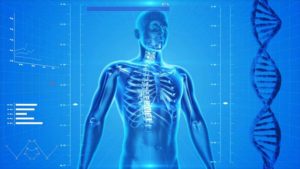Many people who have celiac are vitamin D deficient. There is a good reason for this. As I explained in my blog post about the villi, a person with celiac has intestinal damage that causes lack of absorption of vitamins and minerals. Vitamin D is absorbed in the small intestine, which is hampered when there is damage.
Unfortunately, in someone with celiac (or crohn’s) those vitamins and minerals have not been absorbing for quite some time, before a person is diagnosed and those levels don’t just bounce back to where they should be. This means that even after diagnosis and adhering to a strict gluten free diet, many continue to have low vitamin D levels (as well as low other vitamin and mineral levels).
The Sunshine Vitamin

Vitamin D from the sun is really important, but we don’t get enough of it. There are several factors to why this is the case:
- The majority of the United States is too far above the equator to get enough benefit from sun exposure
- Sunscreen is a barrier to absorbing Vitamin D
- We cover up, most of the time we are outdoors (following skin cancer recommendations, which are important, too)
- A lot of us spend our time, indoors with air conditioning.
What does Vitamin D do?
Vitamin D is essential for helping us to absorb calcium. If we don’t have enough vitamin D in our body, we can’t absorb calcium properly. This leads to osteoporosis. (A disease that weakens the bones.) This is the most commonly known function of Vitamin D in our body, “to make bones strong”.
However, Vitamin D also:
- Aids in cell growth
- Helps with your nerves and muscles
- Keeps your immune function healthy
- Reduces inflammation
Interesting Info.
Vitamin D acts like a hormone and every cell in your body has a receptor for it.
I am not a doctor, please talk to your doctor about dietary changes. Make a plan with a trained medical professional for how to proceed with your health. Just as problematic as being vitamin D3 deficient, is having too much vitamin D3. Please, consult your doctor.
Problems from not enough Vitamin D
 The following diseases are caused by lack of Vitamin D. At one time in our history Rickets was such a problem that fortifying milk with Vitamin D was introduced in order to help fight against this disease.
The following diseases are caused by lack of Vitamin D. At one time in our history Rickets was such a problem that fortifying milk with Vitamin D was introduced in order to help fight against this disease.
- Osteoporosis
- Rickets – a malformation of the bones seen in children
- Osteomalacia – skeletal demineralization seen in adults
More concerns:
- Low vitamin D may be a contributing factor with cardiovascular disease.
- Cancer
- Bone health
- Depression
- Dementia
- Diabetes
- Inflammation that leads to immune system issues. Possibly leading to some auto-immune issues.
- Infections and illness
- ADHD
- Impulsiveness
- Related to how much pain you feel
- Fatigue
Osteoporosis
Vitamin D deficiency is a major factor for developing osteopenia and osteoporosis. Unfortunately, many who have gone for years with undiagnosed celiac disease are at risk for having osteopenia (pre-osteoporosis) or osteoporosis.
It is important for adults, even those who are diagnosed in their 20s, to not only get a blood panel that includes information about their vitamin D3 level, but also to have a Dexa scan. A Dexa scan checks the density of your bones. This scan is used to diagnose osteopenia or osteoporosis.
Risk Factors For Vitamin D Deficiency
- Autoimmune disease – like celiac disease or Crohn’s disease
- Dark skin– The darker the skin, the more exposure to the sun is needed in order to get the benefits of being in the sun. Dark skin is a natural barrier to the sun.
- Staying indoors- Many people work indoors during the hot, sunshiny times of the day.
- Sunscreen- While we know the benefits and necessity to using sunscreen to protect from skin cancer, caused by harmful UV Rays; sunscreen acts as a barrier to getting vitamin D from the sun.
- Living too far above the equator- If you live in the United States, you are too far above the equator to get much benefit from the sun. While you will get some benefit it will not be enough, by itself.
- Weight– Studies have found that the more overweight a person is, the less likely they are able to hold on to the vitamin D produced from the sun.
- Age– the older we are the less benefits we get from sun exposure
- Medications– some medications can interfere with vitamin D levels.
Celiac and Vitamin D
As I mentioned, at the beginning of this post, people who have damage to their intestines have difficulties absorbing vitamins and minerals. This is what celiac does to the body. The small intestine becomes damaged through gluten exposure. You can learn more about this damage by checking out this post here.
When your body doesn’t absorb vitamin D properly, it can’t absorb calcium. Low vitamin D levels lead to early osteopenia and osteoporosis. This is one of the biggest medical problems for people who have celiac disease. It is important to talk to your doctor and make sure your vitamin D level is where it should be. It is recommended that all adults diagnosed with celiac get a Dexa scan. This will give you a baseline even if you think your bones are fine. (I have had 2. Both times my scan looked good, but the technician told me the second looked even better than the first. So, there was improvement.)
Gluten Free and Vitamin D
The majority of gluten free foods are not fortified like other products are. However, if you drink milk or orange juice, they are often fortified with some vitamin D! There are some foods that naturally have Vitamin D in them, but the amount is not adequate.
Foods high in vitamin D
- Salmon
- Sardines and Herring
- Cod Liver Oil
- Canned Tuna
- Oysters
- Shrimp
- Egg Yolks
- Mushrooms
I am NOT a fish person! So, with this list I am in even more trouble! My confession: I have neglected getting my vitamin D3 checked because my Dexa scans were so good. However, with how run down I have been lately I had those levels checked. Sure enough, my vitamin D3 is low! Now, I am working with my doctor to bring those levels up.
Since the majority of gluten free foods are not fortified, this makes it all the more important to take supplements and have your vitamin and mineral levels checked. Most people find that visiting a medical internist is the best for helping with these levels, but other doctors can run the panels and help as well. *Make sure your supplements are gluten free. You may need to contact the company to find out if there is gluten in the supplement. The gluten free labeling law does NOT apply to supplements.
Vitamin D benefits
- Stronger, better bone health
- Reduces depression
- Boosts weight loss
- Is a natural anti-inflammatory
- Strengthens the immune system
- Protects against auto-immune diseases (Diabetes and Rheumatoid arthritis)
- May help to prevent cancer
- and more
Resources
https://www.healthline.com/health/food-nutrition/benefits-vitamin-d#reduces-depression
https://www.healthline.com/nutrition/vitamin-d-deficiency-symptoms
https://www.medicinenet.com/vitamin_d_deficiency/article.htm#who_is_at_risk_for_vitamin_d_deficiency
http://dailynaturalremedies.com/10-benefits-of-vitamin-d/
http://blog.nasm.org/nutrition/vitamin-d-the-sunshine-vitamin/







4 Comments
Leave your reply.